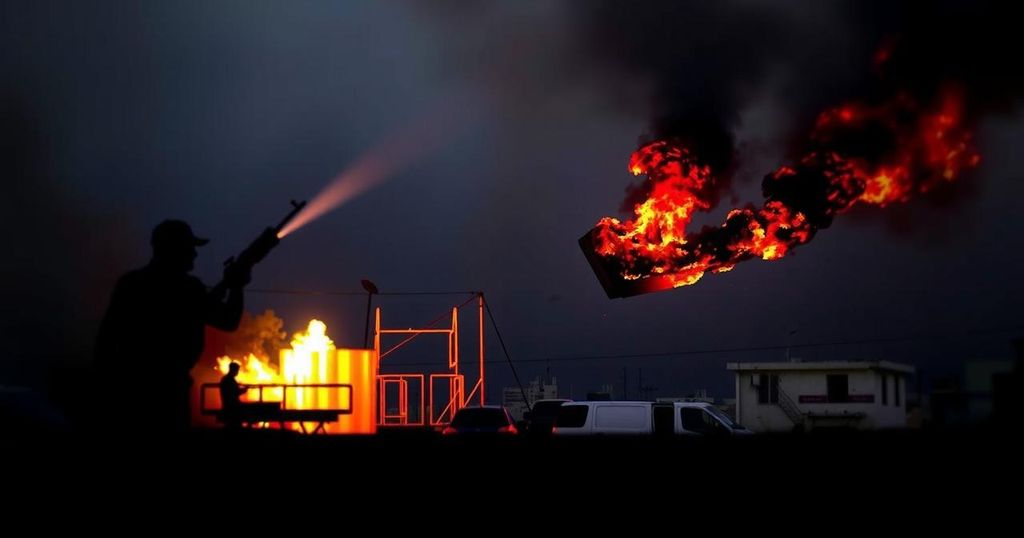U.S. Diplomatic Efforts Intensify Amid Election Uncertainty in Middle East Conflict
American officials doubt that current diplomatic efforts will yield a ceasefire in Gaza before the U.S. presidential election. Israeli Prime Minister Benjamin Netanyahu appears to be waiting for the election outcome before making significant moves. In Lebanon, however, there is some optimism about a ceasefire agreement with Hezbollah. U.S. discussions involve multiple parties and seek to address hostages and de-escalation strategies that have thus far proven complicated, especially under Hamas’s reluctance to accept terms that do not include a permanent ceasefire.
American officials express skepticism regarding the potential success of a final diplomatic initiative aimed at securing a ceasefire in Gaza prior to the upcoming U.S. presidential election. While Israeli Prime Minister Benjamin Netanyahu appears to be delaying decisive action until the election outcome becomes clear, there are slightly elevated expectations for an agreement to alleviate tensions in Lebanon, where the country’s prime minister reported optimism about nearing a resolution to the ongoing violence between Israel and Hezbollah. In an interview, Lebanon’s caretaker Prime Minister Najib Mikati stated, “We are doing our best and are optimistic that within the next few hours or days we will have a ceasefire.” Despite these hopeful sentiments, the Biden administration appears to be aware of Netanyahu’s strategy of waiting out the U.S. election cycle, further complicating efforts to achieve a timely resolution to the conflict in Gaza. CIA Director Bill Burns engaged in discussions in Cairo regarding both Gaza and Lebanon’s situations, while U.S. envoy Amos Hochstein and White House Middle East Coordinator Brett McGurk undertook talks in Israel focusing on hostages and ceasefire arrangements. Netanyahu has insisted on Israel’s capacity to enforce any potential ceasefire, emphasizing that the agreement must ensure the security of Israeli citizens. However, as the U.S. election nears, expectations for a conclusion to the Gaza conflict remain low. Progressive activists, including protesters at campaign events for Vice President Kamala Harris, have voiced demands for immediate action, underscoring the contentious political climate surrounding the Middle East issue for the Democratic Party. In pursuit of a ceasefire, U.S. officials are advocating for a new proposal that would involve a one-month ceasefire in Gaza in exchange for the release of some hostages. Yet, lingering uncertainties regarding the details of this proposal, including the number of hostages and Palestinian prisoners involved, present significant obstacles. The continued reluctance of Hamas to accept any plan that does not ensure a permanent ceasefire further complicates these discussions. In Lebanon, U.S. officials maintain hope for a diplomatic resolution to the conflict with Hezbollah, and after discussions with Hochstein, Mikati indicated optimism for a ceasefire being reached soon. Although earlier reports have surfaced regarding ceasefire draft proposals, both Israeli and U.S. officials have downplayed these suggestions, asserting they do not accurately reflect ongoing negotiations.
The article addresses the current diplomatic efforts by U.S. officials to establish a ceasefire in the ongoing conflicts in Gaza and Lebanon amid the impending U.S. presidential election. It highlights the complexities faced by American diplomats as they navigate Israeli political dynamics, regional tensions with Hezbollah, and the involvement of key figures such as CIA Director Bill Burns and U.S. envoy Amos Hochstein. The article also emphasizes the political pressures U.S. leaders are encountering from domestic activists demanding immediate action regarding the conflicts in the Middle East.
In conclusion, diplomatic efforts to achieve a ceasefire in Gaza and Lebanon face significant hurdles in the lead-up to the U.S. presidential election. While there is some optimism in Lebanon regarding a potential resolution with Hezbollah, skepticism prevails about the likelihood of achieving concrete progress in Gaza. The situation remains fluid, with both regional dynamics and domestic political pressures complicating the landscape for U.S. officials seeking to de-escalate tensions in the Middle East.
Original Source: www.cnn.com




Post Comment